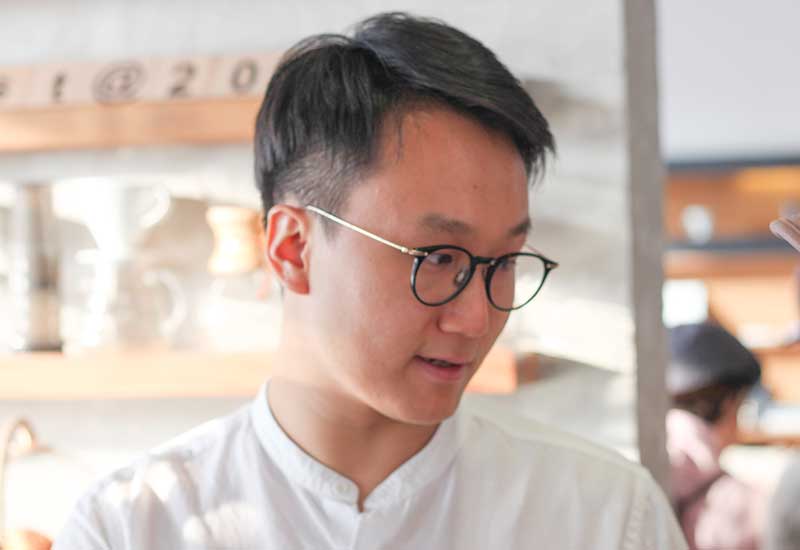What was your introduction to the world of coffee?
Before attending university, I decided to take a gap year and travel around the world. But I had no money so I started working as a barista at a busy railway station. I didn’t understand why people drank coffee even though I made it for them — until people started to tell me that the coffee I made was the best. This made me want to improve my coffee skills and study more about coffee. And the more I did, the more I wanted to work in this industry. I never knew coffee was not only a beverage but affected so many things around the world. I have never looked back, and have made coffee my career.
How do your services benefit F&B outlets? Have you worked with any outlets in the region?
I operate ‘Centre Coffee’ which is my retail and wholesale café and roastery in Seoul, Korea. I also have ‘Spark Coffee Consulting’, which is a coffee consulting company that guides cafés/roasteries in maintaining and discovering premium quality of roasted coffee, along with effective advice on operations. It seems speciality coffee is just starting off in Dubai and I was glad I got the opportunity to collaborate with home-grown coffee house Drop, for a masterclass.

| Advertisement |
How would you describe the regional coffee scene?
Speciality coffee in the Middle East is newly thriving, with coffee houses like Drop helping the UAE catch up to more established regions such as Europe and US.
What’s the biggest misconception about coffee?
One of the biggest misconceptions is that coffee is unhealthy. In all things, moderation is necessary. Overconsuming isn’t good for the body, but, extensive medical research demonstrates positive effects of coffee on one’s health. Having up to 3-4 cups daily will increase your life expectancy and is related to reducing cancer, which is intriguing. This week, I have been helping guide some of Drop’s finest on how quality and training plays a major role. Consuming low quality, over-roasted coffee can be damaging, whereas high-quality coffee, when prepared correctly, provides the body with antioxidants.
Name your proudest moment so far?
I would have to say my proudest moment was when one of my clients increased their wholesale business 10 times after receiving roasting consultations. I knew they would do well as they had the drive and passion to serve better quality coffee and learn ways to achieve that. When they applied what they had learnt, it was only natural for people to realise and acknowledge quality, which helps increase sales.
What are you working on next?
I’m currently working to expand my business in Seoul and hopefully, go international. To maintain insight and create an effectively intimate and consistent training course, I am looking to focus the majority of my attention on long-term projects, with a maximum of two key companies under my wing per year. This way I can make sure that trainees are thoroughly immersed and committed to a higher quality of barista performance and learning experience.









 Search our database of more than 2,700 industry companies
Search our database of more than 2,700 industry companies









